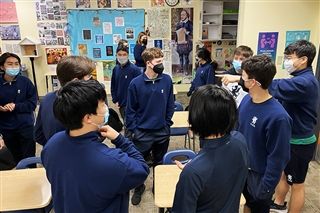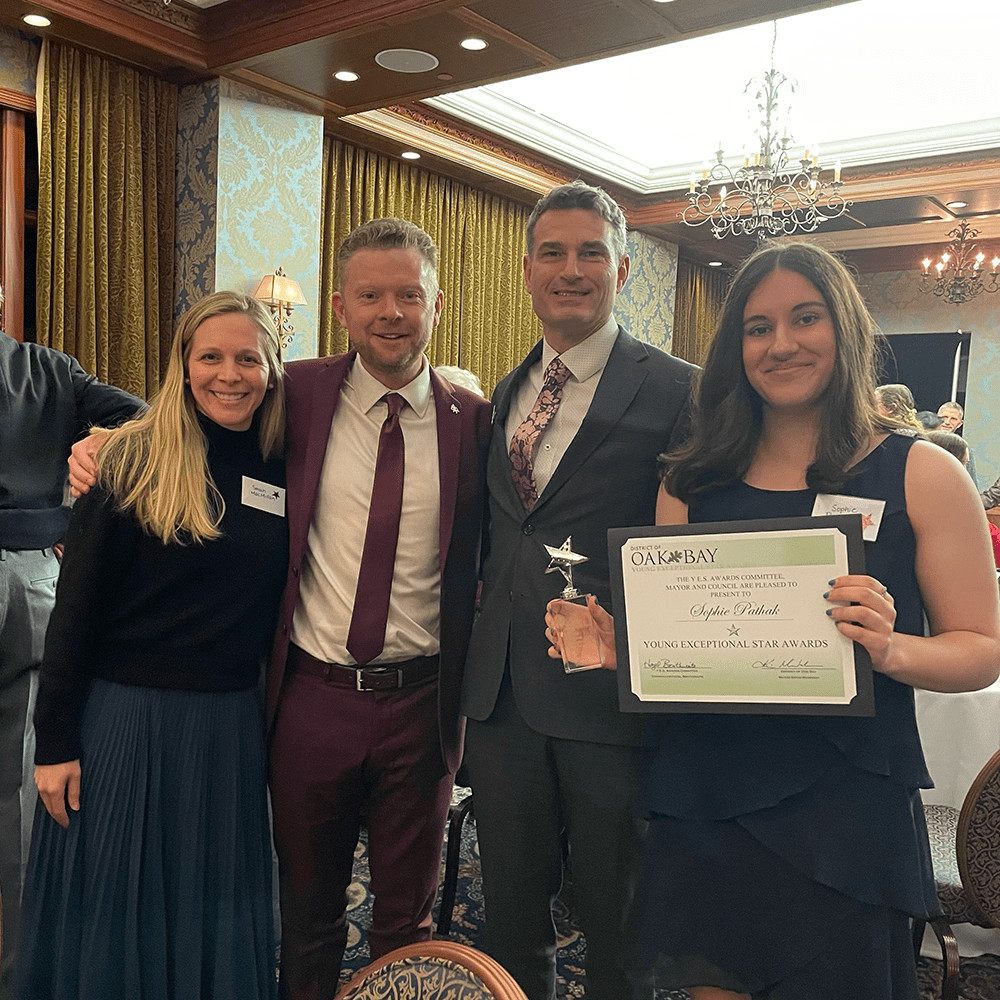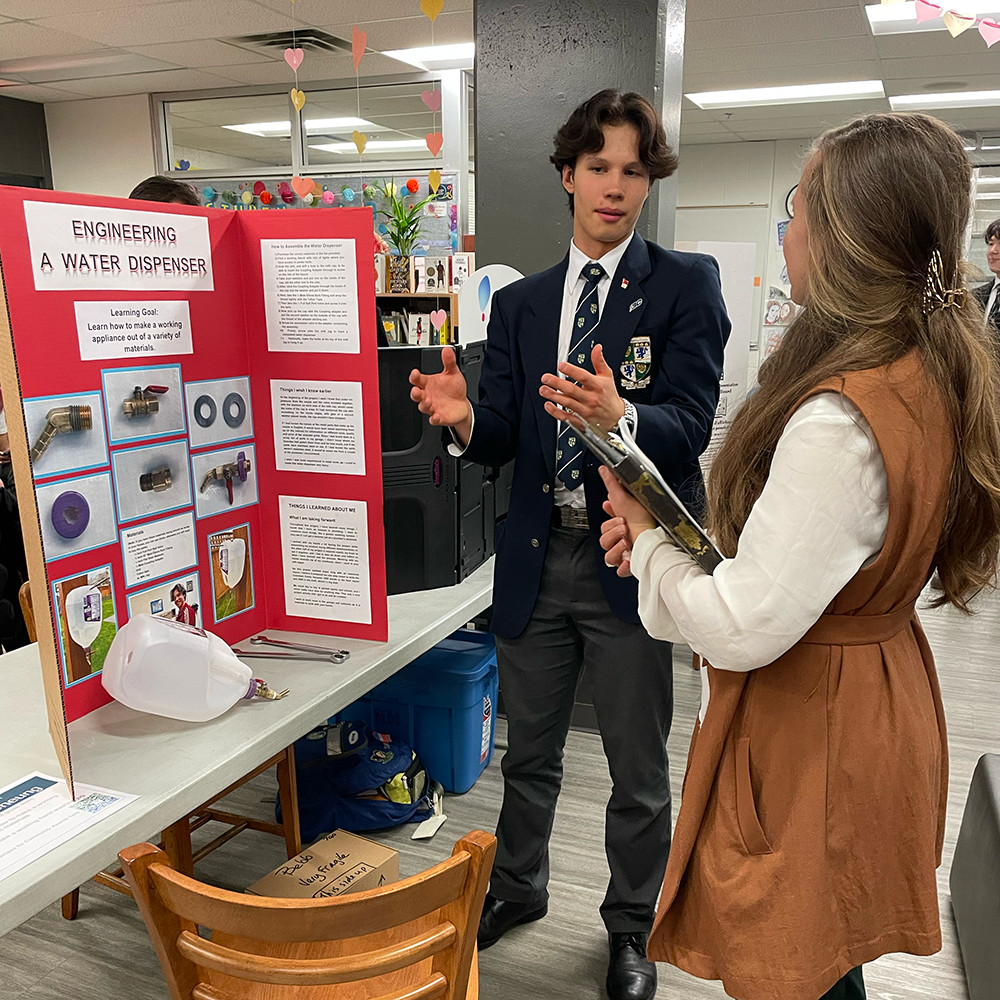Mr. Robert Marthaller’s Language and Literature Grade 10 students competed in a friendly class game with some surprising results.
The class recently read Obasan, a novel by Joy Kogawa about the mistreatment of Japanese-Canadians in World War II after the bombing of Pearl Harbour. Many Canadians with Japanese ancestry were falsely accused of having an association with the Japanese military.
After reading the book, the Grade 10s played a game of “Enemy,” to show just how easily people can be divided under unusual circumstances. Students had to try to root out the four “enemies” hiding amongst their “friends” in class, through questions and interrogations.
“I told them all that there were enemies involved, and then I showed each student a secret card letting them know that they were either a friend or an enemy,” explained Mr. Marthaller. “The idea of the game was to then get into a group that felt safe and free of enemies.”
At the end of the game, students would receive a cupcake if they finished in a safe group. To make things more interesting, each Grade 10 was given a loonie that they could use to barter with others in the game, in exchange for information, loyalty, or alliances.
“It was high stakes,” said Robert. “No one wanted to give away their dollar or miss out on a cupcake!”
Once the game was over, a big twist was revealed, as there were no “enemies” in the group, despite the strategizing and accusations. Each student got a cupcake, but those who had lost their loonie didn’t get it back.
“It was tough, because you couldn’t trust anyone!” exclaimed Luise Rau. “I even thought that my friends were lying and trying to get into my group.”
“It was really fun,” added Rose Wang, “But I had never considered how I would act in that type of situation. I’m glad it was only a game.”
Additionally, the class didn’t know that the game was related to the book they read until afterwards. The activity provided the group with quite a stark realization when things were said and done.
“It was all in good fun, but the scheming and scapegoating was very similar to the treatment of Japanese-Canadians during the war,” said Mr. Marthaller. “Hopefully students got an idea of how quickly and easily one person can turn on another.”





